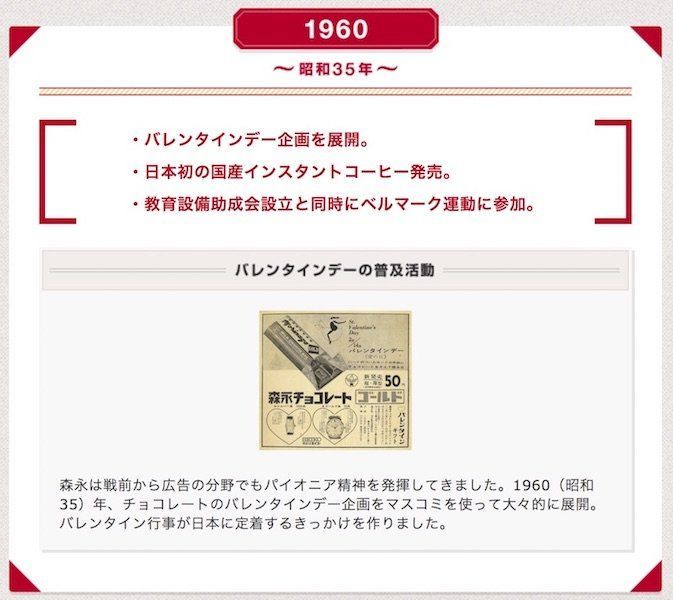In Japan, Valentine’s Day is all about women giving chocolate to men, a strong tradition going back to the 50s. What’s more, chocolate is given not only to lovers but also to male co-workers, bosses, and friends! Last but not least, despite the large displays of chocolate in department stores and grocery stores from January, a majority of the chocolate that is given is homemade…

The strange interpretation of Valentine’s Day in Japan goes back to the early 60s. Spotting a new market opportunity, the confectionery company Morinaga introduced the Valentine’s Day as an American chocolate-giving tradition. Tapping into American culture, they thought it was clever to simply translate English slogan into Japanese. That’s how, due to an unfortunate translation mistake, “Giving chocolates on Valentine’s Day is a way for men to express love to women”, turned into “Giving chocolates on Valentine’s Day is a way for women to express love to men“. And since then the tradition remained.

Originally, you could distinguish two types of chocolates, 義理チョコ and 本命チョコ. The first one is translated as obligation chocolate, and does not involve romantic feelings. The word 義理, (quite hard to directly translate into English) is the cultural obligation of “returning the favor.” Simply put, a 義理チョコ is meant to be given to friends and colleagues. This can include quite a broad group of people and end up being quite…expensive. Indeed, Japanese women will just buy the ready made chocolate as it requires little effort.
On the other hand, the 本命チョコ is a symbol of true love and is offered to a boyfriend or husband. Women will often prepare the chocolate by themselves, investing time and effort. The 本命チョコ also serves the purpose of confessing feelings to a loved one. Hence the high popularity of the tradition among young Japanese!
Nowadays, we can count at least two more types of given chocolate, each with its own meaning.
- 超義理チョコ
Have you heard of the little prefix 超? Combined with adjectives it indicates excess, “ultra”. Women will call 超義理チョコ the chocolate they’re obliged to give to people they don’t really want to give chocolate to…
- 友チョコ
友 comes from 友達, friend. This is “friendship chocolate”, a new tradition popular among girls, giving chocolate to…other girls on Valentine’s Day.